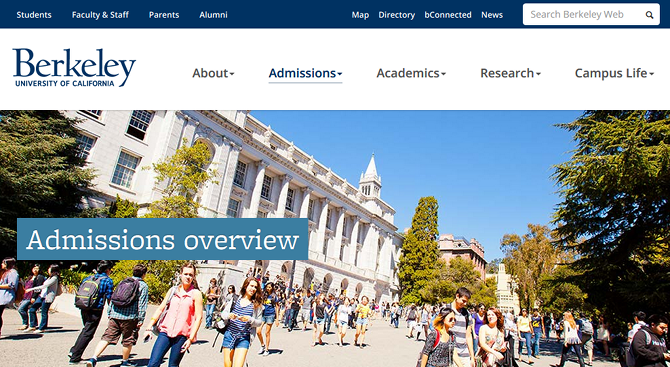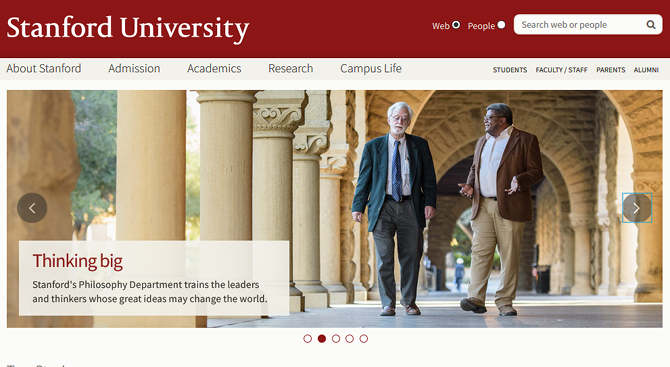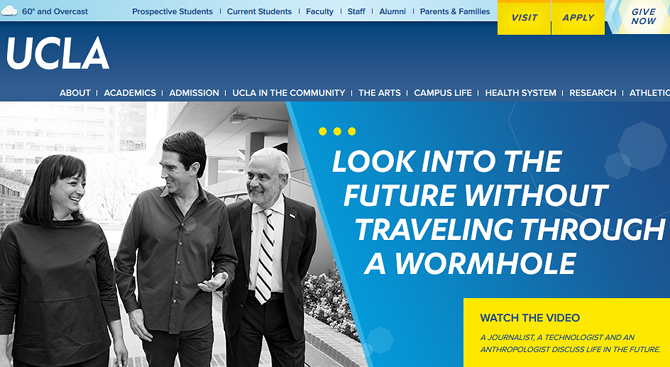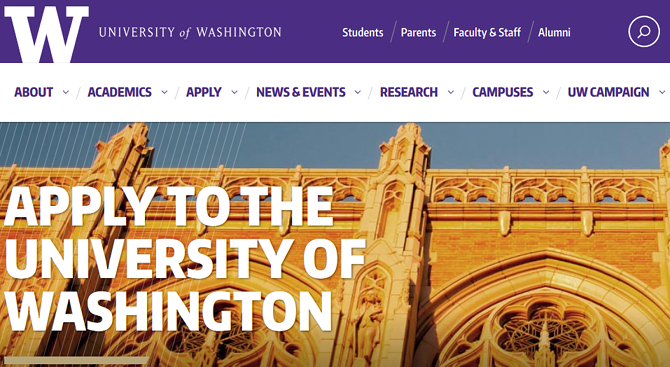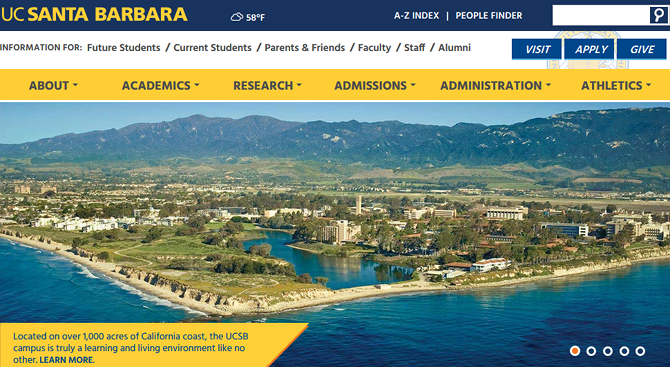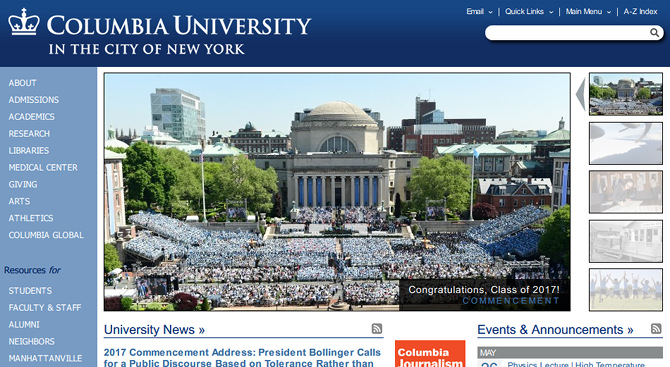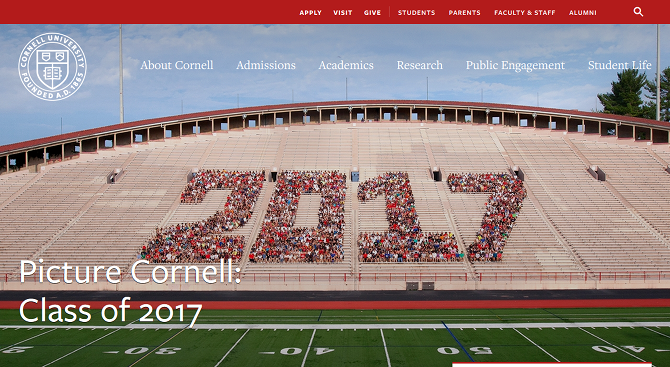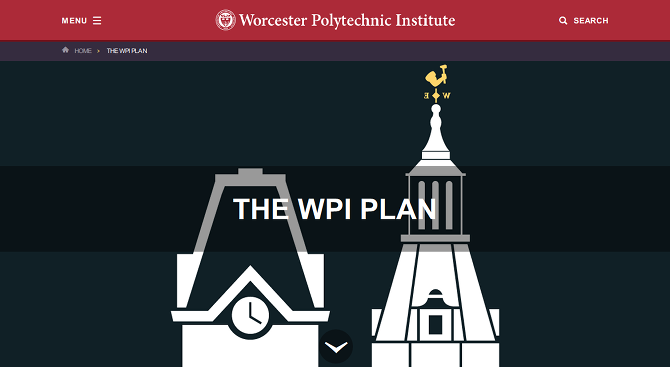The future looks good for computer-related careers. According to the Bureau of Labor Statistics, computer and information technology employment is expected to increase by 12 percent between 2014 and 2024. Broken down, many individual fields will grow quite a bit over that same period:
- Computer Network Architects -- 9 percent
- Computer Systems Administrators -- 8 percent
- Database Administrators -- 11 percent
- Information Research Scientists -- 11 percent
- Information Security Analysts -- 18 percent
- Software Developers -- 17 percent
- Web Developers -- 27 percent
If you're thinking of going to college for Computer Science, or any related major, you should be confident about that choice. The industry hasn't peaked yet and, depending on who you ask, this growth may continue for a lot longer than most are expecting it to.
If you're in it for the long haul, you may as well aim for a top-ranking school -- one that will start you off on a solid foundation and provide the best return on your investment. Think you have what it takes to enroll in a top Computer Science school? Here are the best ones to consider.
How We Ranked Computer Science Colleges
Our list of the best Computer Science colleges may surprise you. That's because we didn't base it on a single aspect (e.g. reputation) but instead incorporated several different factors and data points. Our main criteria:
- Accreditation. All of these schools are recognized as accredited in the United States. Never enroll in a non-accredited school.
- TU Rank. TopUniversities provides QS World University Rankings by Subject, which are based on various factors like Academic Reputation, Citations Per Paper, Employer Reputation, and more. We filtered the 2017 rankings for Computer Science schools in the U.S.
-
Earnings potential for graduates. PayScale provides an annual College Salary Report that ranks hundreds of U.S. schools for salary potential based on two statistics: Early Career Pay and Mid-Career Pay. When calculating earnings potential, we assumed 10 years of Early Career Pay and 20 years of Mid Career Pay.
- Since In-State tuition is often significantly cheaper, you can drastically boost your return on investment by choosing an In-State school over an Out-of-State school, assuming you qualify.
-
Expected return on investment. A ratio between 30-year earnings potential and the cost of four years of tuition, which is the average enrollment period for a Bachelor's Degree.
- You can boost your return on investment even higher if you work hard and finish your degree within three years.
Based on the above, here are the 10 best U.S. schools for Computer Science.
1. University of California, Berkeley
Prestige
TU Rank: 4
Return on Investment
Early Career Pay: $93,200
Mid Career Pay: $142,000
Career Pay Over 30 Years: $3,772,000
Tuition Cost: $38,139 per year (Out-of-State)
Tuition Over 4 Years: $152,556
Expected Return on Investment: 24.7x
Acceptance
ACT: 32
SAT: 2075
Rate: 16.9%
2. Stanford University
Prestige
TU Rank: 2
Return on Investment
Early Career Pay: $99,500
Mid Career Pay: $168,000
Career Pay Over 30 Years: $4,355,000
Tuition Cost: $46,320 per year
Tuition Over 4 Years: $185,280
Expected Return on Investment: 23.5x
Acceptance
ACT: 33
SAT: 2220
Rate: 5.0%
3. Massachusetts Institute of Technology
Prestige
TU Rank: 1
Return on Investment
Early Career Pay: $99,800
Mid Career Pay: $135,000
Career Pay Over 30 Years: $3,698,000
Tuition Cost: $46,704 per year
Tuition Over 4 Years: $186,816
Expected Return on Investment: 19.8x
Acceptance
ACT: 34
SAT: 2240
Rate: 8.3%
4. University of California, Los Angeles
Prestige
TU Rank: 13
Return on Investment
Early Career Pay: $84,300
Mid Career Pay: $123,000
Career Pay Over 30 Years: $3,303,000
Tuition Cost: $37,471 per year (Out-of-State)
Tuition Over 4 Years: $149,884
Expected Return on Investment: 22.0x
Acceptance
ACT: 30
SAT: 1985
Rate: 17.3%
5. Carnegie Mellon University
Prestige
TU Rank: 3
Return on Investment
Early Career Pay: $100,000
Mid Career Pay: $125,000
Career Pay Over 30 Years: $3,500,000
Tuition Cost: $50,665 per year
Tuition Over 4 Years: $202,660
Expected Return on Investment: 17.3x
Acceptance
ACT: 32
SAT: 2165
Rate: 23.7%
6. University of Washington, Main Campus
Prestige
TU Rank: 16
Return on Investment
Early Career Pay: $75,400
Mid Career Pay: $122,000
Career Pay Over 30 Years: $3,194,000
Tuition Cost: $34,143 per year (Out-of-State)
Tuition Over 4 Years: $136,572
Expected Return on Investment: 23.4x
Acceptance
ACT: 28
SAT: 1835
Rate: 53.3%
7. University of California, Santa Barbara
Prestige
TU Rank: Top 200
Return on Investment
Early Career Pay: $72,800
Mid Career Pay: $144,000
Career Pay Over 30 Years: $3,608,000
Tuition Cost: $38,676 per year (Out-of-State)
Tuition Over 4 Years: $154,704
Expected Return on Investment: 23.3x
Acceptance
ACT: 28
SAT: 1795
Rate: 32.6%
8. Columbia University
Prestige
TU Rank: 29
Return on Investment
Early Career Pay: $87,400
Mid Career Pay: $132,000
Career Pay Over 30 Years: $3,514,000
Tuition Cost: $53,000 per year
Tuition Over 4 Years: $212,000
Expected Return on Investment: 16.6x
Acceptance
ACT: 33
SAT: 2215
Rate: 6.6%
9. Cornell University
Prestige
TU Rank: 21
Return on Investment
Early Career Pay: $75,900
Mid Career Pay: $117,000
Career Pay Over 30 Years: $3,099,000
Tuition Cost: $49,116 per year
Tuition Over 4 Years: $196,464
Expected Return on Investment: 15.8x
Acceptance
ACT: 32
SAT: 2145
Rate: 15.1%
10. Worcester Polytechnic Institute
Prestige
TU Rank: Top 500
Return on Investment
Early Career Pay: $83,500
Mid Career Pay: $134,000
Career Pay Over 30 Years: $3,515,000
Tuition Cost: $45,590 per year
Tuition Over 4 Years: $182,360
Expected Return on Investment: 19.3x
Acceptance
ACT: ??
SAT: ????
Rate: 48.6%
Tips for Your Future Career in Technology
If you plan to intern or co-op during the summers, check these tips on preparing for a programming interview and these tips for writing a resume for a programming position.
Are you worried that you'll enroll in Computer Science and one day wake up to realize you weren't meant to be a programmer? Don't fret! The things you learn as a Computer Science student can translate and be applied in other non-coding career paths. It won't be a waste.
And don't forget to sharpen your non-technical "soft" skills! Even the best programmers can have trouble starting and building their careers if they have poor communication, teamwork, or networking. A healthy mind and positive attitude can go a long, long way.
Did this help you decide on a college? Which criterion is most important to you? What other schools are you considering? Let us know in the comments!


